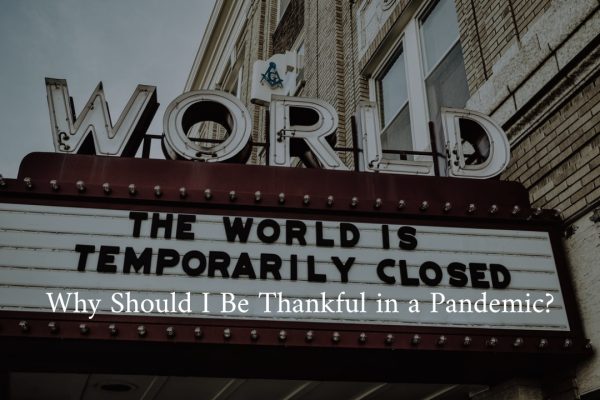Originally written for the Forward Initiative
Nigeria is currently experiencing a massive “brain drain”. Aside from the glaring economic impact (doctors and tech folk – abeg nau!), there’s the lesser considered, but equally damaging, social impact — the loss of friends and community!
The IJGBs have gone back, the been-here’s have flown the coop and the born-here’s have welcomed a new dispensation. The friend you’d usually have the “Omo, everyone is leaving” talk with just changed their WhatsApp number — and it’s not +234. Distance, and new phone codes, will certainly not make hearts grow fonder.
Perhaps, the JAPA grim reaper left your friend group untouched but you’ve checked out mentally. The spring in your chicken is on its last legs! You’d rather be home or someplace that oozes ergonomics and comfort than protect your personal space at the latest exclusive club.
Flip (and reverse) it, maybe your friends have convinced themselves that maturity is synonymous with insipidity. They wax lyrical about circadian rhythms and unknown aches. You love them but, goodness, they bore you!
For others, it’s a new job or love that has you moving locales. Regardless of where you find yourself, you’ve realised, you definitely need new friends (Sorry, Drake!)
Friendships provide the avenue to learn about yourself, celebrate your successes, mourn your losses and challenge yourself to be better. It’s when you can elicit a rapturous laugh with just one knowing glance. It’s the people you share values, pastimes, and life with.
One of the most beautiful qualities of true friendship is to understand and to be understood.
Lucius Annaeus Seneca
At its core, friendships give us a sense of belonging. That’s why they’re so important. It is also probably why we instinctively start building friendships from a young age.
Children (or friendship fiends, as I like to call them) can genuinely make five friends in under 30 minutes. Meanwhile, in Adultsville, 18 months barely gets you on a first-name basis with your neighbour because “boss” and polite smiles seemingly suffice.
Take a moment and think back to nursery school. The ability to make friends was so easy. All you had to do was show up and you’re guaranteed a best friend by break time.
Things get a little harder during Primary and Secondary school. There’s teenage angst, hormones, and probably the debut of your first arch-nemesis. Your friendship group has also drastically reduced.
Sometimes things improve slightly during University and NYSC. This is largely based on your accommodation decisions and level of camaraderie. If you missed your chance to establish an arch-nemesis, this period offers ample opportunity.
Post-university / NYSC? Aired dkm! The line-up is finalised. The roster is full and you’re done. You politely navigate acquaintances who think they’re friends to the appropriate zone. You may promote an acquaintance but there’ll definitely be some relegations.
It seems like the older you get, the harder it becomes to make friends – like there’s a specific period in life, you’re supposed to have made all your friends. Once that period ends – you just have to make do with the ones you’ve gathered and if you lose them – too bad! It’s like the transfer window but for friends and unlike football, it NEVER reopens.
Many people believe their friendship (transfer) window has expired. They feel they’re past their deadline. They’ve accepted that their lot is surface conversations and polite laughs. They can’t turn back the hands of time and quite frankly, they don’t want to – making friends can be a tedious exercise, especially at this age.
As Fireboy DML and LADIPOE put it, there’s no time and there’s [certainly] no energy, so we run away from making new friends. Essentially, friendships are harder to come by when older because the difficulty in making friends lies in our busyness and (un)willingness to be vulnerable.
But fear not, there’s hope! University of Maryland psychologist Marisa Franco suggests that the elements required to make friends organically, are continuous unplanned interaction and shared vulnerability”
If we want to make friends as adults, we simply have to create an environment for the friendship window to thrive! This means building avenues for continuous (unplanned) interactions and vulnerability.
Without further ado, here are some tips on making new friendships as adults:
- Set up communal activities
This allows you to meet new people even if it’s a planned interaction.
Join a gym/book club, pick up a sport/hobby, join a faith group, or watch global events at the local bar. If all else fails, join that dreaded alumni WhatsApp group!
- Mix business with pleasure
Convert your regular stomping grounds to scouting grounds! Strike up a conversation with that person you always bump into at the barber’s/salon/supermarket. Talk to that amusing/intriguing co-worker. If you’re feeling especially brave – commute to work together!
- Don’t forget
Remember to put these activities in the calendar and make it impossible to miss them. You have to be consistent! Don’t get disappointed if some events don’t occur immediately or as frequently as you’d like – it happens!
- Conversation Starters
In a time when your breathing pattern may be deemed offensive, it may be daunting to start a conversation with a stranger. Opt for open-ended non-routine questions e.g.
- What’s a fact about you that most people don’t know?
- Using drinks (or food), how would you describe yourself?
- If you had to switch outfits with anyone here, who would it be?
- If you were the DJ, which song would you play next?
- What do you enjoy most about what you do?
The trick to maintaining a conversation is in the follow-up. These questions may help prime the pump but the conversation flow is in listening to their responses and developing rapport using their unique lived experiences.
- Handling rejection
Start off assuming people like you (crazy, right?) So, if things don’t work out – don’t immediately internalise the failure of that friendship. Look for practical reasons e.g. clashing schedules etc. When creating friendships, the focus is on making quality and mutual connections. Don’t let the ones that didn’t work out weigh heavily on your mind. If you have to force it, just leave it. There’s always someone else.
- Reduce the pressure
Don’t set too many rules and expectations. Instead, allow your friendship to evolve organically. Much like there’s no set period to make friends there’s also no set time for friendship milestones – assess each friendship on its own merit. Also, focus on the way a friendship feels, not what it looks like on paper.
- Keep putting yourself out there (Cliche but very true!)
Lastly, stay off your phone in new settings. Introduce yourself. It’s not enough to be present at the event – you have to engage with people. Ideally, you should get contact details of the people you’d like to see again. (nothing invasive, social media handles will do!)
- Be real
The first step of making friends is meeting people but it doesn’t stop there. Transitioning from acquaintances to friends requires vulnerability. Genuinely check in on people and if someone asks how you are doing, be honest. Tell them. You can start with tertiary issues (like traffic ruining your day or running 10km in 10 mins) and eventually progress to more significant things. These check-ins provide the opportunity to build an affinity for each other.
Each friend represents a world in us, a world not born until they arrive, and it is only by this meeting that a new world is born.
Anais Nin
Discover the new worlds in you – reopen your friendship window!




